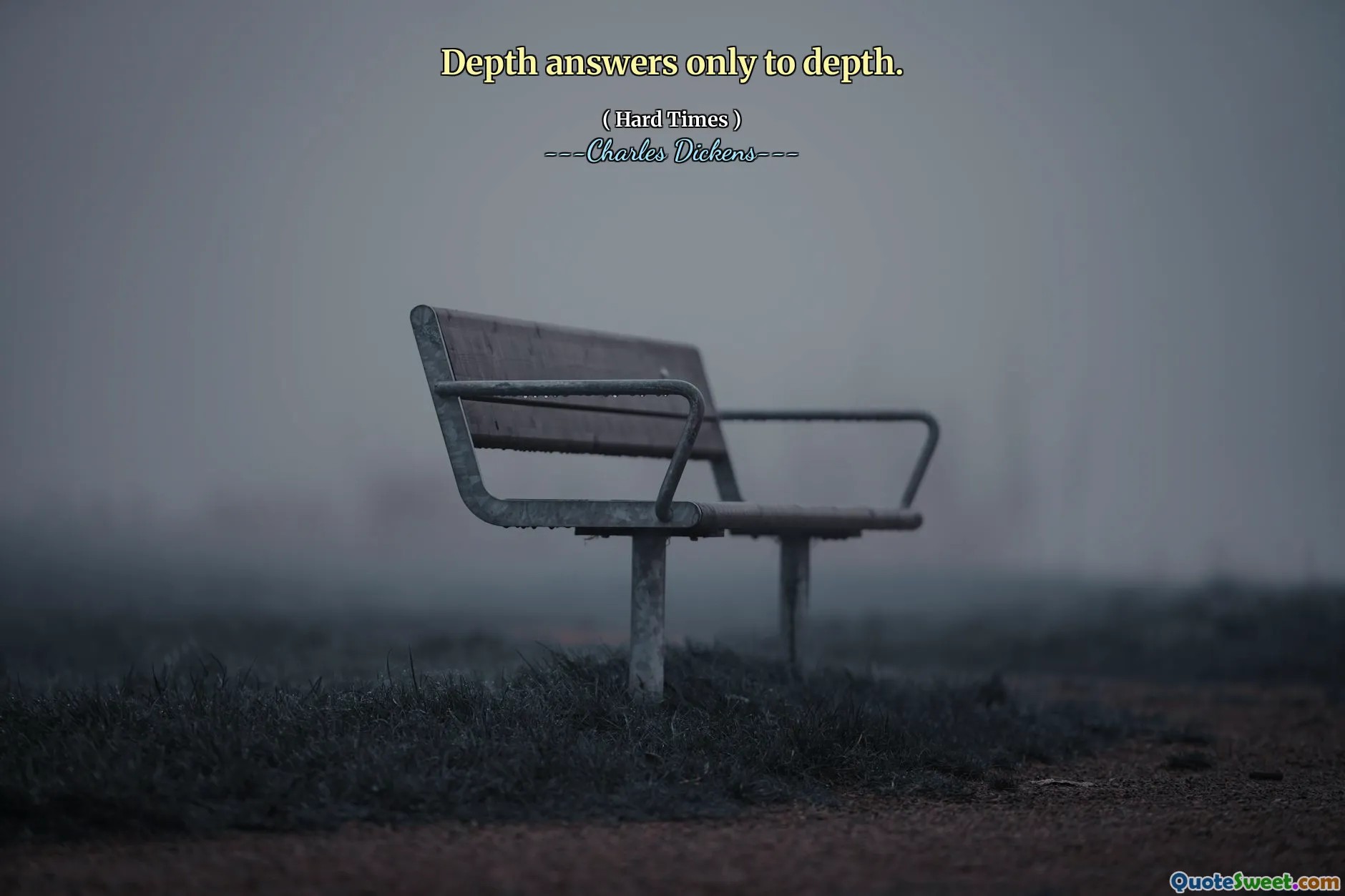
Depth answers only to depth.
The quote underscores the fundamental principle that genuine understanding and meaningful connection can only be achieved through a reciprocal level of depth. When engaging in conversations, relationships, or even self-reflection, superficial interactions often lead to superficial insights. True depth—whether in thought, emotion, or understanding—requires vulnerability, patience, and a willingness to explore complex layers beneath the surface. This notion resonates deeply with the idea that reciprocal engagement is essential for authentic exchanges. When one party is superficial, expecting profound responses from someone who offers only surface-level insights is futile; it’s a mismatch of depths that hampers meaningful progress.
In exploration of human nature, this quote suggests that depth functions as a mirror — it reflects only what is placed before it. To attract or invoke a profound response, one must first invest genuine effort and depth into their own interactions or pursuits. For example, a conversation that delves into personal beliefs, values, and experiences promotes mutual understanding because both participants are engaging at a level where true insights can emerge.
Furthermore, in the broader context of self-development and learning, the analogy of depth highlights that superficial knowledge often leads to shallow outcomes. Mastery and insight come from immersing oneself fully into a subject, embracing complexity rather than avoiding it. Such a mindset fosters growth, authenticity, and trust.
This principle also extends to art, music, and literature; where layered meanings and emotional depths resonate only if the audience is willing to engage deeply.
Ultimately, the quote captures a universal truth: authenticity, growth, and meaningful connection are rooted in depth. When we seek meaningful results, we must first cultivate depth within ourselves and our engagements, trusting that genuine depth only responds to its equal.






